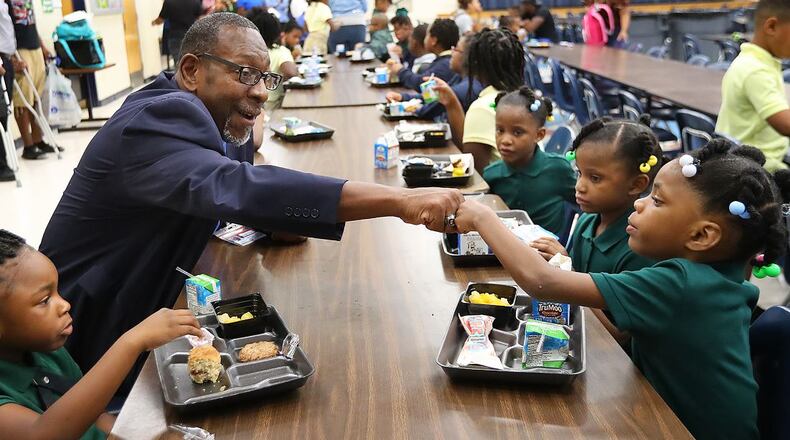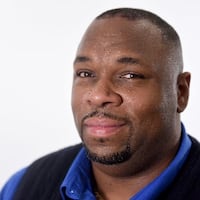DeKalb County School Superintendent Steve Green is pleased with recent increases in the district’s graduation rate, how students are faring on the SAT, as well as the state’s report card for school progress.
What pleases him most is how the students represent themselves and the district outside the classroom, particularly the national walkout on March 14.
“It was one of the proudest moments for me, where I give an A-plus to all our students and staff,” he said from the auditorium stage at the district’s Stone Mountain headquarters Tuesday evening, at the State of the District presentation. “I was like a proud father … beaming with pride. I watched the demonstration — the expression of First Amendment speech — done in a respectful and powerful way. We can talk about graduation rate, SAT, ACT and all that. Now, we’re talking about productive citizens.
“Job well done.”
Green took his cue from the last six weeks' playbook, discussing how the school district was implementing tactics to keep students safe from violence, computer threats, and even mental collapses. The district has endured more than 60 investigated threats of violence since a former student entered Marjory Stoneman Douglas High School in Parkland, Fla., killing 17 students and staff. Administrators are also keeping a close eye on computer attacks, made more prominent here as the City of Atlanta deals with a recent hacking. Green and several of his cabinet members highlighted things from safety measures in new building construction to the "whole child" approach in providing social services, as well as the district's state-of-the-art computer firewall.
“We’re not going to divulge all of our secrets, but there’s 24-hour surveillance working with a variety of agencies … a tight web … of anything that poses a threat,” Green said. “We are wired up and we’re geared up to do what we need to do to protect the learning environment.”
Joshua Williams, the district’s chief operating officer, discussed double vestibules, which give an extra layer of protection when outside guests visit a school.
Vasanne Tinsley, the deputy superintendent for student support and intervention, said teams under her leadership were working to provide students more engagement with counselors, social workers, psychologists and abuse-prevention specialists as well as offering translation services for the district’s international community.
A question from the audience was why it took up to three days for a student to get in front of a counselor at one school. Tinsley said her team was looking into the type of work counselors are doing, hoping to lighten their load of administrative duties to put more focus on students.
Part of the PowerPoint presentation included a narrative on a Bullying Allegation Investigation Cycle, a new procedure for investigating bullying claims. An investigation can be started by a parent, who submits the claim in writing to a school employee, who then submits it to the principal, which should trigger an investigation. “All bullying allegations are to be taken seriously,” the PowerPoint said in capital letters at the bottom.
District officials said earlier this year that not every bullying allegation is investigated as a bullying incident, that sometimes the allegation is investigated under another category.
“Our students are going through a lot, and they have a lot to navigate,” Tinsley said.
Green said it is important to use all available resources, and to detect early warning signs that a student might be having troubles.
“That young man down in Parkland, (Nicolas) Cruz, he gave all the signals,” Green said. “And those signals were ignored.”
About the Author
Keep Reading
The Latest
Featured



